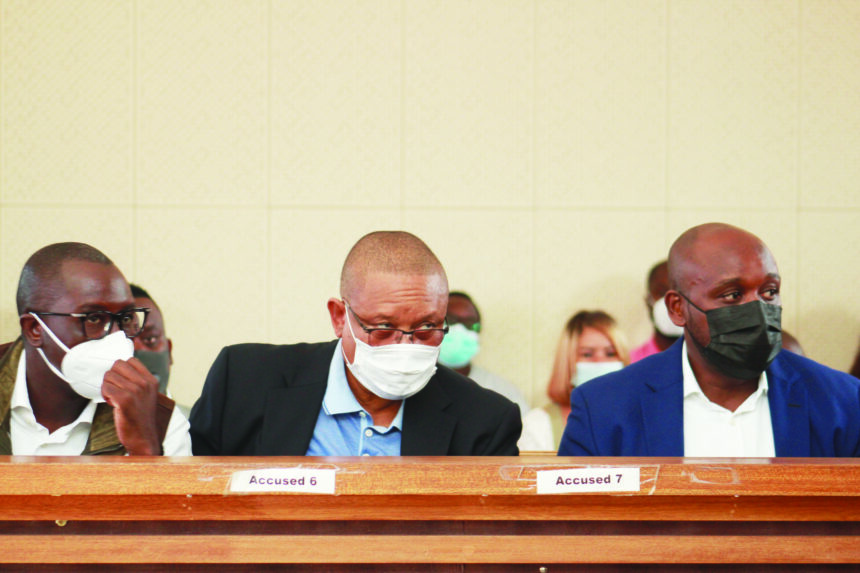Windhoek High Court Acting Judge Moses Chinhengo last week quashed the hopes of Fishrot accused and former justice minister Sacky Shanghala to have certain issues he has with the manner in which the trial is progressing reserved.
Shanghala, James Hatuikulipi and Pius Mwatelulo applied in terms of section 319 of the Criminal Procedure Act to have questions they have about the suitability of Judge Chinhengo to preside over their trial as well as the manner in which he decided to record pleas from unrepresented accused persons.
Mostly, they wanted the questions they have reserved for consideration by the Supreme Court.
Acting Judge Chinhengo, however, found that it is not the task of the High Court to answer questions sought to be reserved for the Supreme Court, but merely to decide whether such questions should be reserved.
In this instance, the judge stated, he had already answered the questions sought to be reserved in his judgment in the recusal application, which was confirmed by the Supreme Court. Further, he agrees with the contention of the State that section 319 applies to irregularities during trial that may only be raised at the end of the trial, and not before or during.
Judge Chinhengo, therefore, held that the application was premature, and further stated that the question of his suitability for the trial should have been brought as a separate application challenging the court’s jurisdiction, or an application served on the appointing authority.
He said the current application is a disguised form for seeking an interdict against the continuation of him from taking pleas from the accused, an exercise that has started, and has been stalled by the application and the previous recusal application.
As a matter of fact, the judge said, the multitude of applications by the accused is a vainly-disguised attempt at delaying the trial until the unrepresented accused secure representation. According to him, the phrase “on the trial” in the wording of the section encompasses the grounding of the question on the conduct of the judge in hearing the case, and not on the extraneous factors such as the validity or otherwise of the judge’s appointment.
He noted this issue can be raised separately, either as a recusal application, or more appropriately in the instance as a plea to jurisdiction of the court basing such plea on the court’s competency. Further, he said, when a court has already dealt with questions raised during a recusal ruling, which was upheld by the Supreme Court, such questions are disposed of, and cannot offer applicants a second bite at the cherry, so to speak.
He dismissed the application and did not make any cost order. Shanghala represented himself, and the State was represented by Cliff Lutibezi and Ed Marondedze. -rrouth@nepc.com.na


